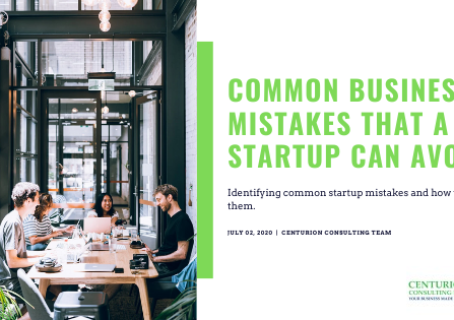Starting a business isn’t always easy. There are so many things to think about and decisions to make; the pressure can cause you to make a poor decision that can hurt your potential for success, or at least set you back.
Many aspiring entrepreneurs start with enthusiasm and flair but as many 83% of them do not carry on to the next year or fail within 5 years. Almost all companies studied have common reasons for their failure even before beginning to pick up. They fall into the trap over and over again but if they could avoid these business startup mistakes; their chances would significantly improve.
There are some recurring mistakes entrepreneurs make and if you know about them, you can learn to avoid them. Here are few common startups mistakes every entrepreneur should avoid: –
- Starting a Business without a Business Plan –

80% of the entrepreneurs feel that they know everything about a business they want to get into merely by working in that particular industry or in the sector and that they would not need a Business Plan to start up the venture.
What they don’t realize is its very different being an employee and looking at one part of the business that you are exposed to vis a vis running the business as a whole. The running and operational costs factored in or for that matter even the startup costs estimated could go grossly wrong if all the elements of costs are not factored in.
A business plan provides the right direction to not just start your business, but also to stay and grow your business. It defines your revenue model, estimates your return on investment and covers strategic and financial projections based on market data. If you are seeking for funding or as a founder need to understand how to prepare for your business, this is a report you will need to develop.
A start up should map out a business plan, in as detail as possible. It should consist of costs of startup, costs to operate, Costs to market and sell your product or service, pricing the market can absorb, and the percentage of addressable market they can reach out to. Analyze all the pros and cons of the things you have made your mind on adding. Your projected plan would help you in making the quick and right decision.
- Failing to have an informed Marketing Strategy –

If you venture out on a business venture without having a strategic marketing plan in place for your start-up, the chances are your advertising, marketing and promotion efforts are haphazard and not relevant to the end objective.
A market research backed by a marketing strategy can help you define your market thoroughly, determine your target audience and choose appropriate marketing medium for your business. A marketing strategy can help you chart a course of action on promoting your business, also guide on which marketing approaches result in the highest flow of business.
If a marketing strategy is not in a place, the consumers will not be aware of your business, this can lead to slowdown in a business and eventual closure of your start-up.
- Misjudging Timelines to break even and mismatched Expectations –

About a third of new start-ups underestimate their expenses and overestimate their start up period and commercial break-even period. A start-up needs to come into this with a full understanding of what it will cost, how long it will take and how you plan to stay afloat during this period and what’s the right amount of money you will need. By hiring a business consultant or an
Early Life Mentor in this area to help you calculate all of these at the outset. Enable set realistic timelines and educate you on the process before you make the head start.
- 4. Lack of Team – either inhouse or outsourced & Improper Delegation of Tasks
One of the key elements contributing to the success of the business are the key management personnel and the roles, responsibilities, and accountability. It may not always be possible to have all the KMPs employed because it would be very expensive. However, on an outsourced basis or on need basis please do make it a point to have all the experts you may need. Legal Team to review the contract terms and conditions before you embark on your supplier contracting, A person or team is to be made accountable for 4 Critical Elements of business: Marketing and Sales, Finance and Accounts, Legal and Compliances and Management for vision and direction.
- No Backup Plans –
It’s absolutely no exaggeration to say start-ups, both small or large, have been completely caught unawares by not having an effective back up plan in place. In a refined manner, a backup plan is any plan or course of action that helps your business mitigate harm and improve safety and security. You can also call it a Business Continuity Plan, Disaster Recovery Plan or even as simple as an absentee employee cover up plan.
Something as simple as data breach or hours of downtime, tough market conditions can place your business far behind, and in today’s market, being behind is just not an option you should have. Therefore, a plan can take you from panic to successful mitigation and offer a simple yet effective way to get back on your feet.







